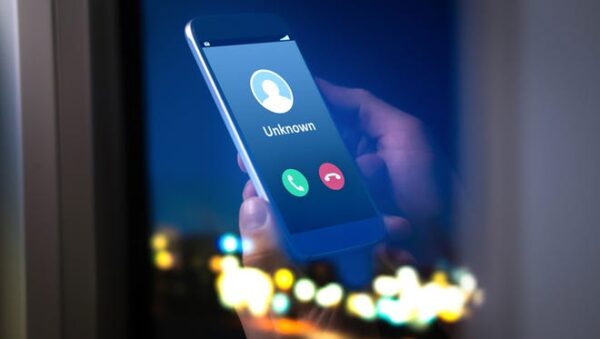Warning Spam call alert : 01217515743 / 0121-751-5743 / 0121 7515743 / +441217515743 / 44 01217515743 / 0121 751 5743
Introduction
who called me from 01217515743 : scams and fraudulent activities have found new avenues to exploit unsuspecting victims. One of the most common tactics used by scammers is phone calls.
The 0121-751-5743 spam call scam is a prevalent example of such fraudulent activity that has been causing distress for individuals across the globe.aims to shed light on this specific scam, explain how it works, and provide essential tips on how to protect yourself from falling victim to such schemes.
The 0121-751-5743 Spam Call Scam
The 0121-751-5743 spam call scam is a phone-based fraud scheme that typically involves a call from a seemingly official or reputable source. The scammers behind this number often impersonate government agencies, financial institutions, or utility companies to create a sense of urgency and manipulate their victims. Here’s how the scam usually works:
Read more : https://wnmagazine.com/2023/10/09/01772451126-who-called-me/
- Impersonation: Scammers often pose as representatives from well-known organizations, such as the IRS, Social Security Administration, or a bank. 0121-751-5743 They may use fake names and badges to appear legitimate.
- Urgency: The scammers create a false sense of urgency. They claim that there is an issue with your account, taxes, or personal information that requires immediate attention to avoid legal consequences, penalties, or service disruptions.
- Threats: To make their story more convincing, they may threaten you with arrest, legal action, or account suspension if you fail to comply with their demands.
- Request for Personal Information: The scammers will ask for personal information, such as your Social Security number, bank account details, or credit card information. They may also request payment in the form of gift cards, wire transfers, or cryptocurrency.
- Caller ID Spoofing: Many scammers use caller ID spoofing to make the call appear to be coming from a legitimate source. In the case of the 0121-751-5743 scam, the number may look like a legitimate local or official number, making it more likely that you’ll answer the call.
The Consequences of Falling Victim to this Scam
If you fall victim to the 0121-751-5743 spam call scam or similar schemes, you could face severe consequences, including:
- Financial Loss: Scammers aim to steal your money and personal information, potentially leading to financial loss and identity theft.
- Emotional Distress: Dealing with the fear and stress induced by these scams can be emotionally distressing.
- Legal Troubles: Believing false threats of legal action, some individuals may end up sharing sensitive information or making payments, which can lead to legal troubles.
- Compromised Privacy: Your personal information can be sold on the black market or misused for further scams and criminal activities.
How to Protect Yourself from the 0121-751-5743 Spam Call Scam
Protecting yourself from phone scams, including the 0121-751-5743 spam call scam, is crucial. Here are some practical steps to safeguard yourself and your personal information:
- Be Skeptical: Always be cautious when receiving unsolicited calls, especially if they claim to be from government agencies, financial institutions, or utility companies. Legitimate organizations usually do not make unsolicited calls for urgent matters.
- Verify the Caller: Ask for the caller’s name, title, and a callback number. Verify their identity by independently searching for the official contact information of the organization they claim to represent.
- Do Not Share Personal Information: Never share personal or financial information over the phone unless you are certain about the caller’s legitimacy.
- Hang Up: If you suspect a call is a scam, 0121-751-5743 hang up immediately. Do not engage with the caller or follow their instructions.
- Use Call Blocking: Consider using call-blocking apps or features provided by your phone service provider to filter out potential scam calls.
- Report the Scam: Report the scam to the appropriate authorities, such as the Federal Trade Commission (FTC) in the United States, and to your local law enforcement agency.
- Educate Yourself: Stay informed about common phone scams and their tactics. Awareness is one of the best ways to protect yourself.
Conclusion
The 0121-751-5743 spam call scam is just one example of the numerous fraudulent activities that continue to target unsuspecting individuals. By understanding how these scams operate and taking proactive steps to protect yourself,
you can reduce the risk of falling victim to such schemes. Remember to be skeptical, verify the caller’s identity, and never share personal information over the phone. By staying vigilant, you can safeguard your finances and personal information from phone scammers.
FAQ
- What is a Phone Scam? A . Phone scams are fraudulent attempts to obtain money, personal information, or sensitive data from individuals over the phone. Scammers often impersonate legitimate organizations or government agencies to deceive victims.
- How Can I Protect Myself from Phone Scams?
- Be cautious when receiving unsolicited calls, especially from unknown numbers.
- Do not share personal or financial information over the phone.
- If the caller claims to be from a legitimate organization, verify their identity by independently looking up their contact information and calling them back.
- What Are Common Phone Scams? A . Common phone scams include IRS impersonation scams,0121-751-5743 tech support scams, lottery or prize scams, and utility bill scams. Scammers may also pretend to be from your bank or credit card company.
- How Can I Block Unwanted Calls?
- Most smartphones have built-in features to block or silence calls from specific numbers.
- You can also use third-party apps to help filter out spam calls.
-
What Should I Do If I Suspect a Scam Call?
- Hang up immediately if the call seems suspicious.
- Do not engage with the caller or give out any personal information.
- Report the call to your local law enforcement and the Federal Trade Commission (FTC) if you’re in the United States.
